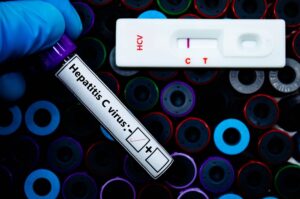
Signs of Stomach Ulcers
Stomach ulcers are open sores that develop on the lining of the stomach or small intestine, but heartburn is caused when stomach acid flows back into the esophagus.

Colon polyps are growths that form on the inner lining of the colon or rectum. While most polyps are benign, meaning they are not cancerous, some can develop into colorectal cancer over time if left untreated. Detecting and removing these polyps early can significantly reduce the risk of developing colorectal cancer.
These growths vary in size and shape, ranging from small, flat lesions to larger, stalk-like formations. Polyps typically develop due to genetic mutations in cells that regulate growth, although particular lifestyle and environmental factors can increase the risk. Many colon polyps do not cause symptoms, so regular screenings, such as colonoscopies, are crucial for early detection and prevention.
Colon polyps may seem harmless, especially when they do not present any symptoms, but their potential to develop into colorectal cancer makes understanding the associated risks essential. Factors such as age, a family history of colon polyps or colorectal cancer, and certain genetic disorders like Lynch syndrome or Familial Adenomatous Polyposis (FAP) significantly increase your risk.
Lifestyle choices, including a diet high in red or processed meats, smoking, excessive alcohol consumption, and a sedentary lifestyle, can elevate the likelihood of polyp formation. Chronic conditions like inflammatory bowel disease (IBD), obesity, and type 2 diabetes may also contribute to higher risk levels. Recognizing these factors allows individuals to take proactive steps toward risk reduction, such as regular screenings and adopting a healthier lifestyle.
Diet plays a significant role in the development and prevention of colon polyps. Consuming a diet high in red and processed meats has been linked to an increased risk of polyp formation due to the carcinogenic compounds formed during the processing and cooking of these foods. Low fiber intake can slow digestion, leading to prolonged exposure of the colon lining to potential carcinogens.
On the contrary, A diet rich in fruits, vegetables, whole grains, and other high-fiber foods may help protect against polyps by promoting regular bowel movements and providing essential gut health nutrients. Limiting foods high in saturated fats and sugar can also improve colon health.
Making thoughtful dietary adjustments is a practical step toward reducing the likelihood of developing colon polyps and supporting long-term digestive wellness.
Certain foods have been identified as potential contributors to the development of colon polyps. Red and processed meats, such as beef, pork, sausages, and bacon, have been strongly associated with an increased risk due to harmful compounds formed during preparation methods like smoking, curing, or grilling at high temperatures.
Diets high in refined carbohydrates and added sugars can lead to inflammation and insulin resistance, which may play a role in polyp formation. Foods high in unhealthy fats, such as fried snacks or heavily processed baked goods, can also negatively impact colon health.
Being mindful of these food choices and moderating their consumption can help lower the risks related to colon polyps and maintain a healthier digestive system.
Maintaining a diet rich in nutritious foods can play a vital role in promoting colon health and reducing the risk of polyps.
Regularly incorporating these foods into your diet can contribute to a healthier colon and improved overall well-being.
Taking proactive steps to maintain colon health can significantly lower your risk of developing colon polyps.
Regular screenings such as colonoscopies are essential, as they allow for early detection and removal of polyps before they progress.
Adopting a healthy lifestyle is equally important—avoiding smoking and limiting alcohol intake can reduce potential risk factors. Maintaining a healthy weight through regular physical activity and a balanced diet is crucial in prevention.
Reducing the consumption of processed and red meats while increasing the intake of plant-based foods can further support colon health.
Please consult your healthcare provider for the best preventive strategies tailored to your needs.
Screening for colon polyps is a vital step in maintaining digestive health and preventing potential complications, such as colorectal cancer. Generally, it is recommended that individuals with an average risk start regular colonoscopy screenings at age 45.
Those with a family history of colon polyps or colorectal cancer or individuals with conditions like inflammatory bowel disease may need to begin screenings earlier. Specific symptoms, such as persistent abdominal pain, rectal bleeding, or changes in bowel habits, should also prompt immediate evaluation.
Regular discussions with your healthcare provider can help determine the most appropriate screening schedule based on your personal health history and risk factors.
It is essential to talk to your doctor if you experience symptoms that may indicate the presence of colon polyps or other gastrointestinal issues. Be sure to seek medical advice if you notice rectal bleeding, blood in your stool, unexplained weight loss, or persistent changes in your bowel habits, such as diarrhea or constipation.
If you have a family history of colon polyps or colorectal cancer, discuss this with your healthcare provider to assess your risk and explore early screening options. Open communication with our professionals at Allied Digestive Health ensures timely diagnosis and appropriate management, helping maintain your digestive health and overall well-being.

Stomach ulcers are open sores that develop on the lining of the stomach or small intestine, but heartburn is caused when stomach acid flows back into the esophagus.

Poorly absorbed carbs may ferment in the gut, leading to symptoms such as bloating, gas, diarrhea, or constipation.

If left untreated, GERD can lead to complications including esophagitis (inflammation of the esophagus), strictures (narrowing of the esophagus), or even Barrett’s esophagus, a condition that increases the risk of esophageal cancer.

IBS-C often requires a tailored approach that incorporates dietary changes, stress management, and sometimes prescribed medications to regulate bowel movements and reduce discomfort.

Hepatitis C can affect women differently due to hormonal variations, immune system responses, and unique physiological factors

This connection means that stress, anxiety, and other psychological factors can directly impact gut function, leading to symptoms like abdominal pain, bloating, and irregular bowel movements.

Chronic inflammation associated with IBD can lead to complications such as joint pain, skin conditions, eye issues, and more.

How different types of fiber affect IBS is crucial to creating a diet that supports digestive health without triggering flare-ups.

Lactose Intolerance occurs due to a deficiency of lactase, the enzyme responsible for digesting lactose in the small intestine.

This condition can result from various factors, including poor diet, stress, infections, or underlying health conditions like IBD.

One of the most essential steps in managing IBS is identifying specific triggers and paying attention to your body’s unique responses.

Although the symptoms of IBS can vary widely from person to person, several common signs are associated with the condition.
For Your Visit
Brick Office
P: 732-458-8300
Brick Medical Arts Building
1640 Route 88, Suite 202
Brick, New Jersey 08724
Mon – Fri: 8:30AM – 5:00PM
Sat & Sun: Closed
Neptune Office
P: 732-776-9300
Jersey Shore Medical Arts Building
1944 Corlies Ave. Suite 205
Neptune, New Jersey 07753
Mon – Fri: 8:30AM – 5:00PM
Sat & Sun: Closed
Jackson Office
P: 732-928-2300
706 Bennetts Mills Road
Jackson, New Jersey 08527
Mon – Fri: 8:30AM – 5:00PM
Sat & Sun: Closed
© All Rights Reserved